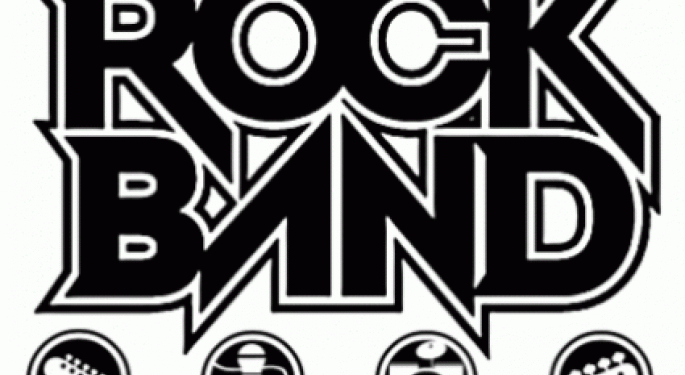Who Should Buy Rock Band Creator Harmonix?
While it might have come as a surprise that Viacom Inc. (NYSE: VIA) would decide to sell Harmonix so soon after the release of Rock Band 3, there is a more pressing matter to consider: who should take the company off of Viacom's hands?
Having created music games for several different companies – including Frequency and Amplitude for Sony Corporation (NYSE: SNE) and Dance Central for Microsoft Game Studios (NASDAQ: MSFT) – VIA shouldn't have any trouble finding a buyer. But who among them could take Harmonix's innovative creations above and beyond the game industry?
Electronic Arts
This one is a no-brainer. As the distributor of Rock Band, and as the company responsible for heavily promoting the series at trade events like the Electronic Entertainment Expo, Electronic Arts Inc. (NASDAQ: ERTS) will be first in line to acquire Harmonix.
On the upside, this would give Harmonix an owner whose primary focus is game industry growth. EA is a respected company with many successful brands, including Madden, FIFA and Mass Effect. Under EA's control, Harmonix would be allowed to flourish as a designer of music games. EA could also give Harmonix the opportunity to interject music gameplay elements into other genres, opening the door for new hybrids.
On the downside, EA is no stranger to product delays and cancellations. This could endanger the production of future Harmonix properties.
Sony
In the early days of Harmonix, the studio teamed with Sony to publish two unique music games: Frequency and Amplitude. Now that the studio is up for sale, Sony could team with Harmonix once more.
Like EA, Sony isn't afraid of delaying or canceling a product several years into development. If Sony were to purchase Harmonix, exclusivity would become an issue because Sony wouldn't allow one of its subsidiaries to publish games for Microsoft or Nintendo platforms – or anyone else.
On a more positive note, Sony would give Harmonix access to a whole host of electronics R&D – something it would not gain from most prospective buyers. If Sony's top game and electronic designers joined forces with the men and women responsible for revolutionizing the art of music games, there's no limit to what they could accomplish.
Microsoft
With Dance Central, Harmonix has already shown its love for Kinect. And if Microsoft were to acquire the studio, you can be certain that Kinect development would become its primary focus.
This could lead to some very interesting music game/motion-controlled hybrids, especially if Microsoft expands Kinect to Windows computers and other devices.
However, just as Sony would likely prevent Harmonix from making games for its competitors, Microsoft would do the same. Delays and hardware/software glitches are another issue that Microsoft would bring to Harmonix.
Nintendo
As a company that works on a five- or six-year cycle (innovative in the beginning of the cycle, which is when new game systems are released; lackluster in the end as the systems approach retirement), Nintendo might not be the best company for Harmonix.
But in terms of quality gameplay, mainstream marketing, and massive sales, it's hard to argue with Nintendo's track record. Nintendo's games frequently dominate the sales charts (especially during the first three years of its product cycles). If the company acquired Harmonix, its future games would receive a much-needed boost in international publicity.
More importantly, Nintendo could help steer Harmonix in the proper direction. We don't yet know if music games are going the way of the music industry – down the toilet. It could be a temporary decline. If not, then Nintendo is the perfect company to turn things around.
After all, this is the publisher that dominated the game industry during the early ‘90s, nearly slid to third place for 10 years, and came back around to number-one with the most mainstream game console ever made: Nintendo Wii.
If you can get seniors to spend $250 on a game machine, it shouldn't be too hard to get young, frequent game players to care about music games again, right?
© 2025 Benzinga.com. Benzinga does not provide investment advice. All rights reserved.
Posted-In: electronic arts Microsoft Nintendo Rock BandM&A News Rumors Tech



